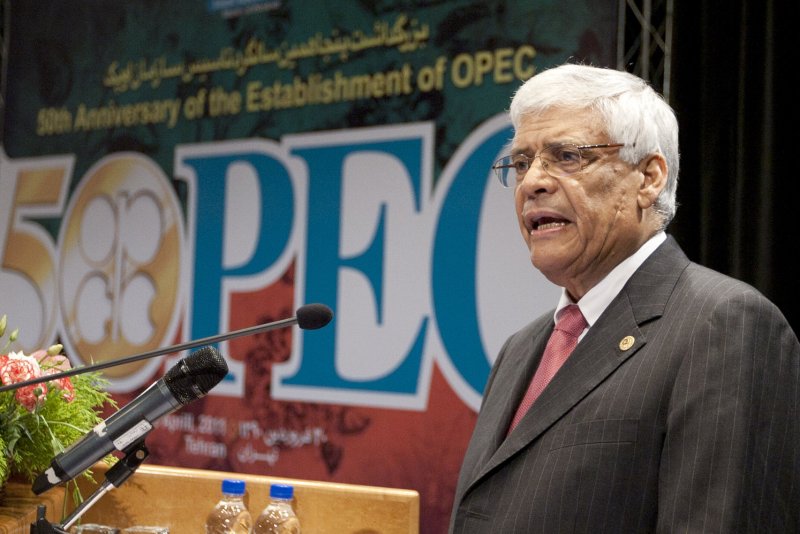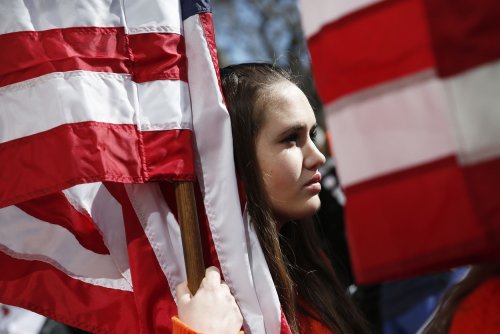Former secretary General of OPEC Abdalla Salem El Badri during a ceremony to mark the 50th anniversary of the establishment of the Organization of Petroleum Exporting Countries in Tehran, Iran on April 19, 2011. Photo by UPI |
License Photo
Oct. 9 (UPI) -- Russia's Energy Minister Alexander Novak considers unnecessary for the country to join the Organization of Petroleum Exporting Countries, or OPEC, as the current relationship makes it possible to reach accords while avoiding "legal obligations".
"I do not think it is necessary and reasonable, " he said Tuesday during an interview aired by the Rossiya-24 TV news channel when asked whether the country could join the cartel, according to a report by the Russian news agency Tass.
"Fundamentally, the instruments being used today when we reach agreements (between) OPEC and non-OPEC countries are quite functional. Meanwhile, we have no legal obligations that are rather complicated," Novak said.
The agency said that OPEC member-states and non-OPEC countries, including Russia, agreed in December 2016 to cut oil production by a total of 1.8 million barrels per day in comparison with October of that year.
In was the first global pact in 15 years, OPEC members agreed at the time to jointly reduce output by 1.2 million barrels, while non-OPEC countries agreed to cut output by a combined 558,000 barrels per day.
Saudi Arabia and Russia had the biggest cutbacks of 486,000 and 300,000 barrels per day, Tass noted.
"The deal has been extended twice since then -- until the end of March 2018, and later -- until the end of 2018. However, it has been decided to partially restore production starting July 2018," Tass added.
WTI crude future prices traded at $46.06 per barrel on Nov. 26, 2016, a few days before the agreement. The price on Tuesday afternoon was $74.99 per barrel.
OPEC and non-OPEC ministers last met in June and agreed to increase output but it was not clear by how much. The next OPEC meeting will be on Dec. 4.
That meeting date will come within a month of the start of sanctions imposed by the United States against Iran that include an attempt to prevent the country from continuing oil exports. Uncertainty related to reduced supplies have contributed to price volatility.
OPEC's founding members -- Iran, Iraq, Kuwait, Saudi Arabia and Venezuela -- set up the organization in 1960. Qatar, Indonesia, Libya, the United Arab Emirates, Algeria, Nigeria, Ecuador, Gabon, Angola, Equatorial Guinea and Congo joined later. Indonesia suspended its membership in 2016 -- the group currently has 15 member countries.
The history of Russia and the OPEC relationships has seen disagreements over market share and failures to follow through with accords, according to an S&P Global report.















